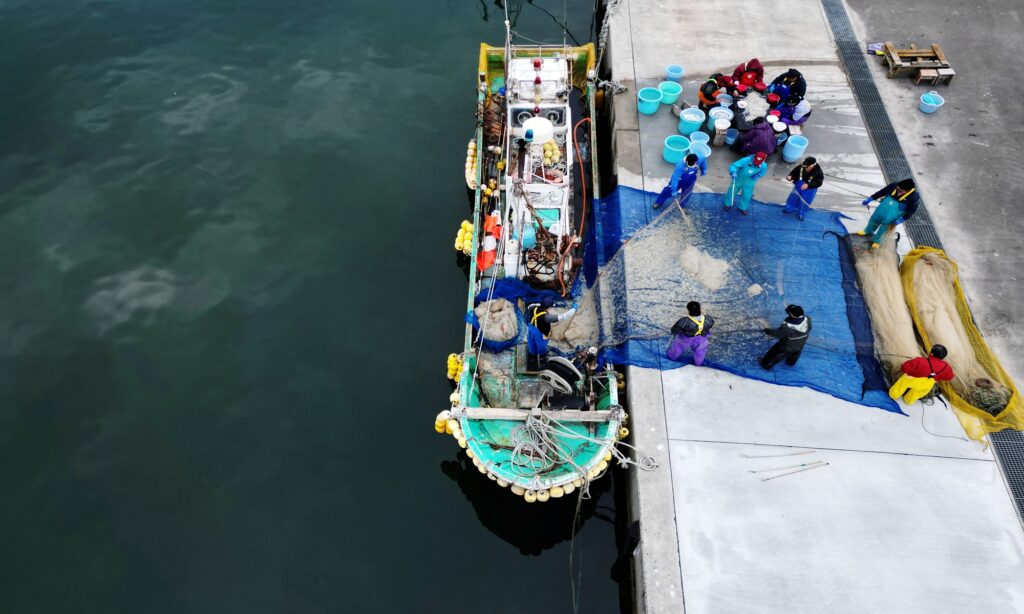A Chinese fisheries industry group on Monday urged the public to boycott sea cucumbers and similar products imported from Japan amid growing concern and anger over Japan’s deliberate dumping of nuclear-contaminated wastewater into the sea last week.
Despite the opposition of the international community, Japan forcibly began the dumping of nuclear-contaminated wastewater into the Pacific Ocean, posing a threat to the health of people all over the world and the marine environment, the Sea Cucumber Industry Branch of the China Fisheries Association said in a statement on its official WeChat account.
“On behalf of the sea cucumber breeders across the country, we severely condemn Japan’s despicable and selfish behavior of dumping the wastewater into the ocean, and firmly support any sanction measures adopted against it,” the statement said.
For the health of consumers and industry practitioners, the industry branch association also called on all domestic industry players to carry out nuclear radiation testing on raw and finished sea cucumbers before sale.
China’s General Administration of Customs has decided to fully suspend imports of aquatic products originating from Japan, which aims to “comprehensively prevent the risk of radioactive contamination caused by the dumping of nuclear-contaminated water from Fukushima to food safety, protect the health of Chinese consumers, and ensure the safety of imported food.”
In a previous interview with the Global Times, Chi Feiyue, a deputy secretary-general of the China Fisheries Association, said “We resolutely oppose Japan’s dumping of nuclear wastewater, since if it had an impact, it would be devastating.”
The Yellow Sea region, including the Liaodong Peninsula and the Shandong Peninsula, is the main breeding ground for shellfish, oysters, sea cucumbers, algae and seaweed.
Among them, scallop farming accounts for 90 percent of China’s total output while wakame, a kind of seaweed, makes up 80 percent.
Japan’s dumping has caused widespread concern over the safety of food and other products from Japan, with many people in China looking for alternatives to reduce risks, leading to products such as salt being sold out on some e-commerce platforms.
A Beijing-based industry insider told the Global Times on condition of anonymity on Monday that the seafood industry is very upset with Japan’s wastewater dumping and looking into the case with great concern for the possible impact on the whole industry.
“While there may be alternatives in terms of the suppliers, its impact could be more than expected, since ultimately we are all on the same boat,” the person said, urging the Japanese government to stop its selfish and dangerous move at once.
Cosmetics from Japan are among the products that have been affected as people are diversifying their choices, the Global Times learned.
Since Thursday, there has been a wave of panic buying and hoarding by customers in online and physical sea cucumber stores in China. Orders have surged, and both the wholesale and retail segments have increased significantly, the Sea Cucumber Industry Branch said.
The industry association said factors including Japan’s wastewater dumping and the coming consumption peak for the Mid-Autumn Festival holidays are having an effect.
The association urged domestic consumers to consume rationally and not to drive up prices, while calling on domestic industry players to keep prices at a reasonable level and not raise them.
(Global Times)




